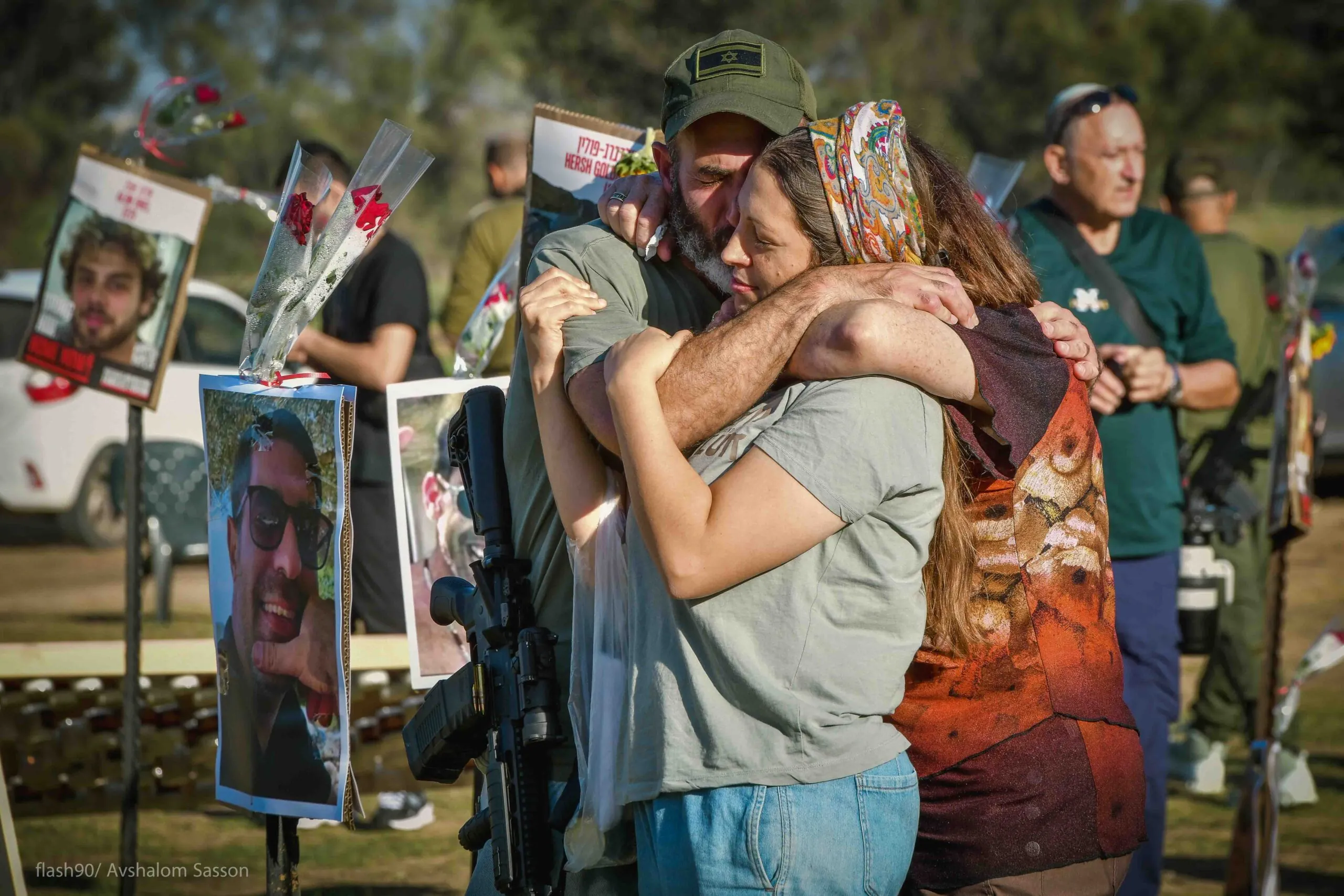
For Israelis, having scientists and engineers build amazing new machines and technical processes that improve the lives of people all over the world is a tremendous source of pride. A few short decades ago, a few million people who didn’t have a place to call home, are now finding cures and treatments for diseases and helping struggling cultures around the world. There’s something in us as a people that finds deep satisfaction in blessing others, even, or perhaps especially, blessing cultures that don’t like us at all.
But while Israel’s “leadership” in areas of medicine and technology are often recognized on the world stage, her contributions to the music world are often overlooked. In the 1970’s Israel twice won first place in what has become the world’s largest and longest-running singing competition (though many Americans have never heard of it)—the Eurovision. That they won, however, is less the point than the songs that brought them to victory. The 1978 song which Israel sent to represent the nation was called “Abanibi.” Originally written with children in mind, the chorus “Abanibi Abohebev Abotobach,” is simply the phrase “Ani Ohev Otach” (I love you) in a silly kids form which adds the “b” sound after each syllable. The next year Israel submitted its second winning song called “Hallelujah,” a song of gratitude for many things in life that concludes with “Hallelujah for all that has happened, and for all that is yet to happen—Hallelujah!”
Over the decades, Israel’s culture seemed to long to be “like all the other nations.” The arts played a role in this process as Israel’s artists produced songs, films, books, and plays that glorified wickedness. As is common with Israel, once they follow in a direction, they eventually lead the way. The next time Israel would win the Eurovision was twenty years later when they sent a transsexual singer named Dana International who won with the song “Diva” that celebrated women as sensual goddesses.
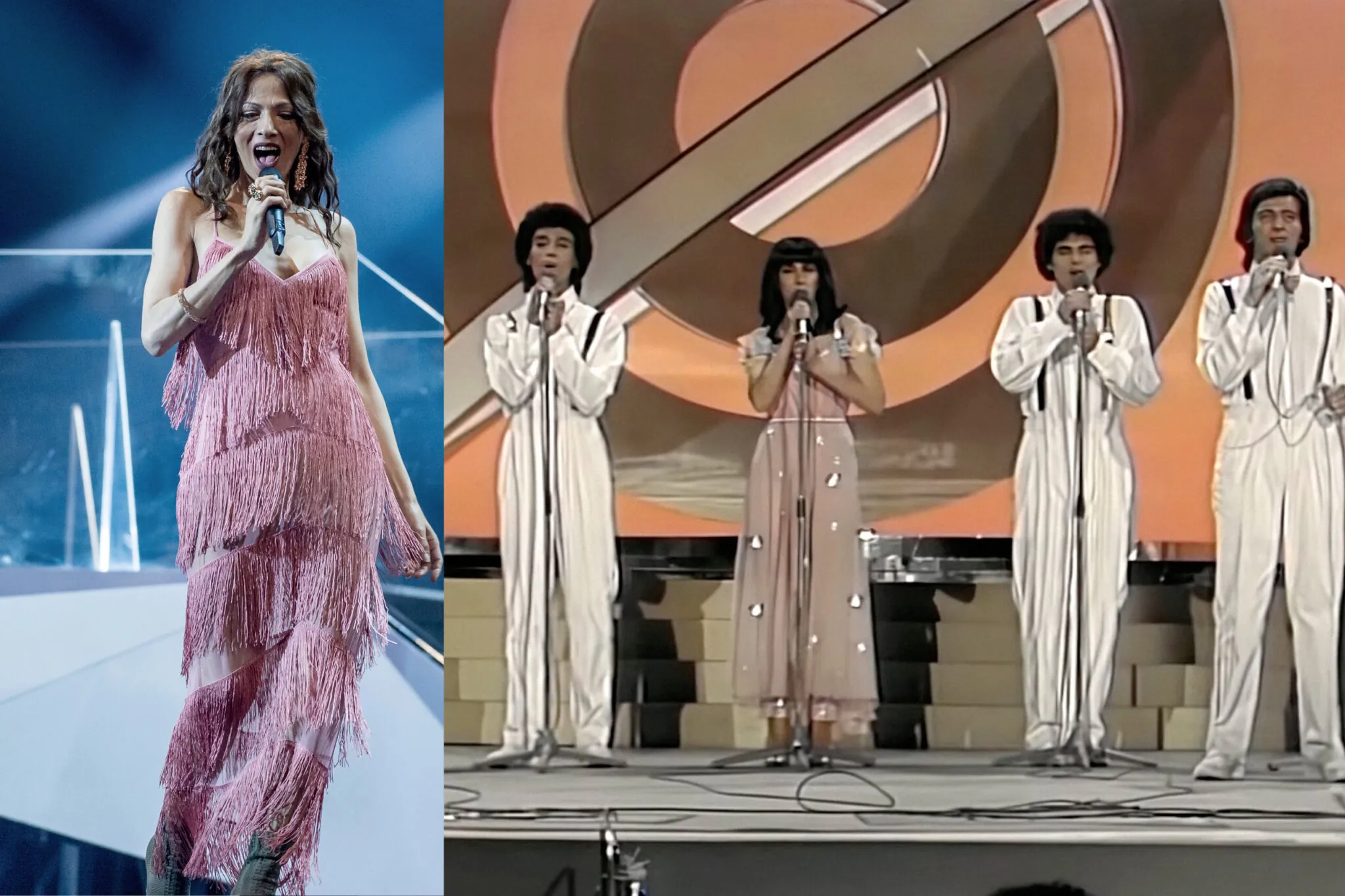
Left: Dana International in performance. (Credit: EUPA-Images / Shutterstock) Right: Representing Israel, the Milk and Honey band win first place with the song Hallelujah in the 1979 Eurovision
The change didn’t happen overnight, but the downturn was steady and consistent, and affected a variety of areas in Israel’s society. Among the standard social problems, Israel distinguished herself in areas such as political corruption, becoming the first democracy to send both a former president and a former prime minister (and other senior government officials) to prison for crimes like bribery and rape. Not to be outdone, Israeli business leaders also made headlines with illegal activities, both inside the country and internationally.
No matter what, Israel was destined to lead. It just wasn’t supposed to be like this.
Back when the Children of Israel began their journey of being transformed from slaves to God’s representatives on earth, they were given instructions on how to live as a light to the nations. But their time in the desert wasn’t just about learning the rules. It was also about being empowered to follow them. That’s where worship came in.
A People of the Presence
When you think of Jews today, you likely envision imagery of shofars, prayer shawls, Hanukkah and matza. But when God called the children of Israel to be a light to the nations, He was not tasking them with opining to the world on the best ways to keep kosher. He was tasking them with being a people where Gentiles could come and experience the most Powerful Force in the universe. He was calling them to be a people who carried with them the Presence of the Living God. And as the Lord is enthroned on the praises of His people—they needed to become a people who knew how to praise and worship.

Worship not only gave God the honor He deserved, it created a space for God to dwell among His people. God’s presence by its very nature empowered them to live a life worthy of their calling. This is why the role of the Levites as “worship leaders” was so crucial to Israel’s existence as His representatives on the earth.
At various times in Israel’s history, the Levites became corrupt, or the role of the Levites was neglected by the other tribes. In either case, things did not go well for Israel during those seasons. Nehemiah famously confronted Israel’s leaders for neglecting the care of the Levites and their role before the Lord. His reinstating of the Levites to their posts played a crucial role in Israel being properly restored as the people of the Presence of God in the Land of Promise.
As we know, God does not change, and His ways in the Bible are our guide today. If Israel’s ability to fulfill her calling so clearly required the role of the Levites, why would it not then clearly require it now?
Levites Today
It was this revelation that inspired us to launch Maoz Israel Music and use it as a platform to assist artists and musicians who love Yeshua in fulfilling their calling to lead this nation in the worship of the living God. By reintroducing this vital piece of God’s prophetic puzzle, we are doing our part in God’s work of restoring the nation of Israel and preparing the world for the return of Yeshua to this earth.
What do modern-day Levites look like? First of all, outwardly, they look like regular everyday people. Our team is very diverse in their backgrounds and skills, but what we all have in common as Israeli citizens is our love for our people and our desire to use our gifts to make the God of Israel known among the nations.
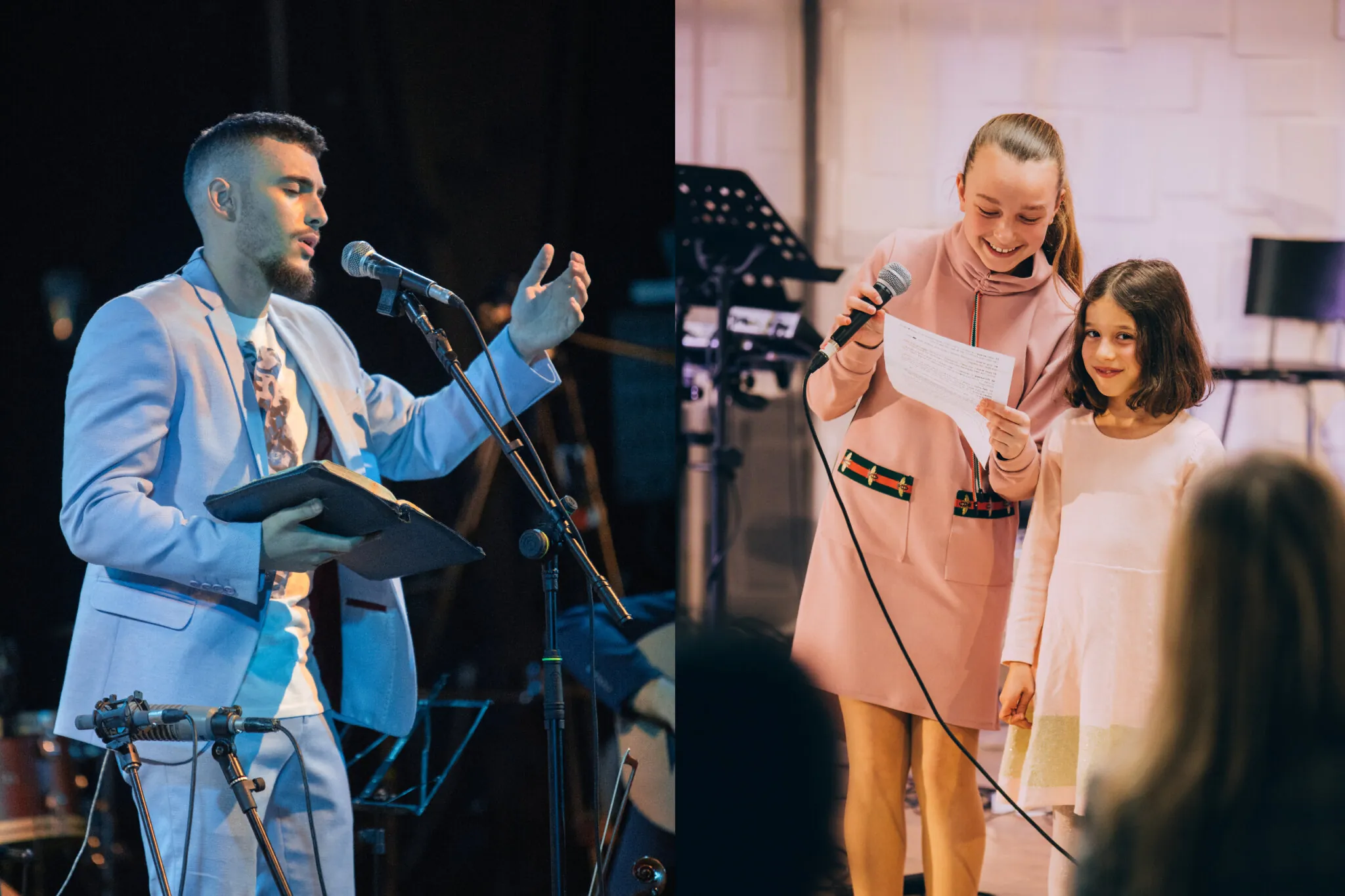
Left: Worship leader Yazeed Sakhnini sings the sermon on the mount from Matthew 5 in Arabic in front of an audience of Muslim and Christian Arabs in Nazareth. Right: Young worshipers in training as part of the Maoz Israel Music program.
Making Yeshua Famous
“All this music you put out… Are you trying to make worship artists famous?” The question was asked of Kobi as he was sharing the vision of Maoz Israel Music and modern-day Levites. “I’m trying to get Israeli worship in front of people in Israel and all over the world.” Kobi responded. “I want to make Yeshua famous. And worship artists who are famous have a platform to make Yeshua famous.”
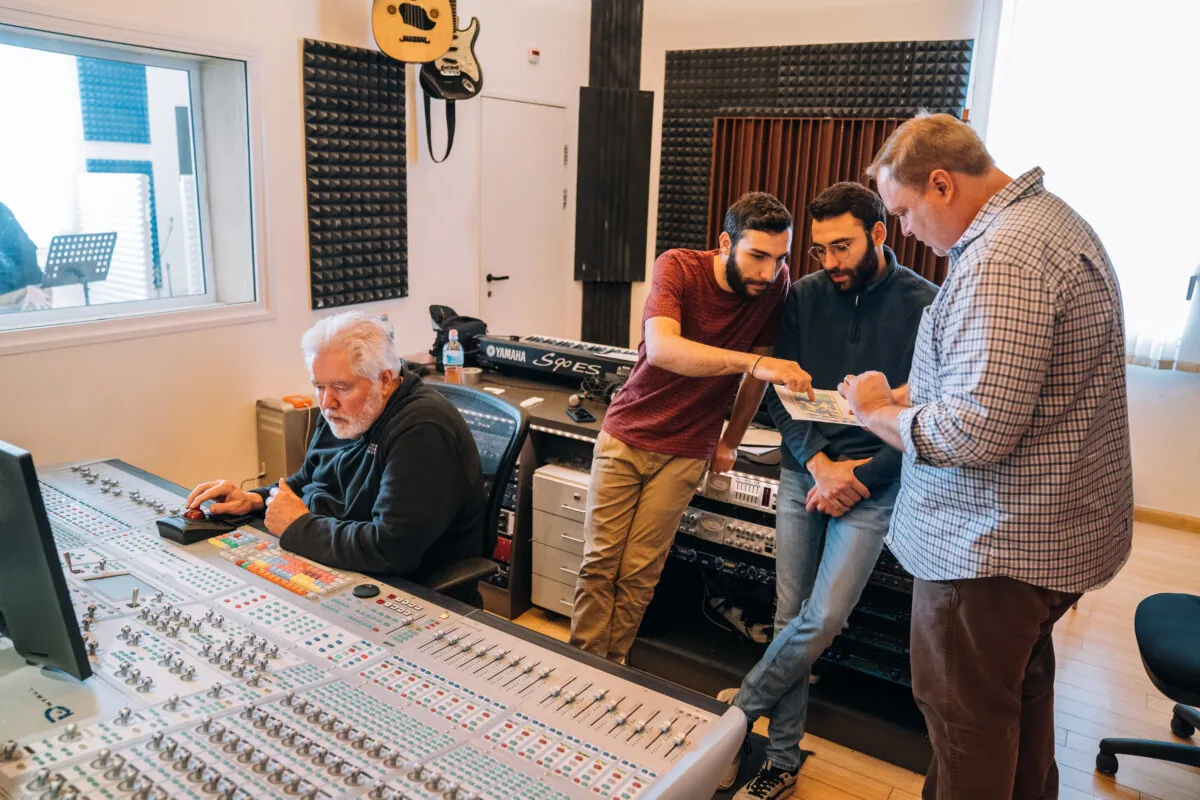
Kobi going over song list for Arabic worship project
What Christians abroad don’t always realize when they see our beautiful studio and the efforts we make to get Israeli worship out in the market is that there is little glory in being known as a follower of Yeshua in Israel. It’s not a fun kind of famous. It makes one (and one’s family) a target for harassment and persecution. The artists and worship leaders who put themselves out there as Jews who represent the Lord are doing so in a hostile environment. But it is what they have been called to do. They understand the impact their worship is destined to have on their people—and the nations. After all, he who leads the worship, leads the world. And so they pour their hearts into their calling, just like their ancestors, just like the warriors of old, just like the carriers of the presence of God they were born to be.
Who’s your Tribe?
For the record, God originally intended for a select group of people to be chosen from each tribe for this role. The plan changed when those from the tribe of Levi—Moses’ tribe—distinguished themselves as the only ones who didn’t worship the golden calf as God’s presence rested on the mountain nearby.
Today, for Jews, the issue of seeking out our tribal origin is a difficult one. Over the centuries, we’ve been exiled—then driven—from country to country for thousands of years. We’ve lived in hiding, changed our names, given our kids up to be temporarily (and sometimes permanently) cared for by Gentiles, and even keeping our identities secret from our children and grandchildren to protect them. By sheer probability there are Jews alive today who will never know they are descendants of the priestly tribe. On the other hand, I’ve heard stories of people who immigrated to new lands and when asked what their name was, and decided Cohen made a great-sounding last name. Ultimately, perhaps King David serves as our model worshiper as he had more influence on worship as we know it than anyone else in the Scripture—and he, like Yeshua, was from the tribe of Judah.
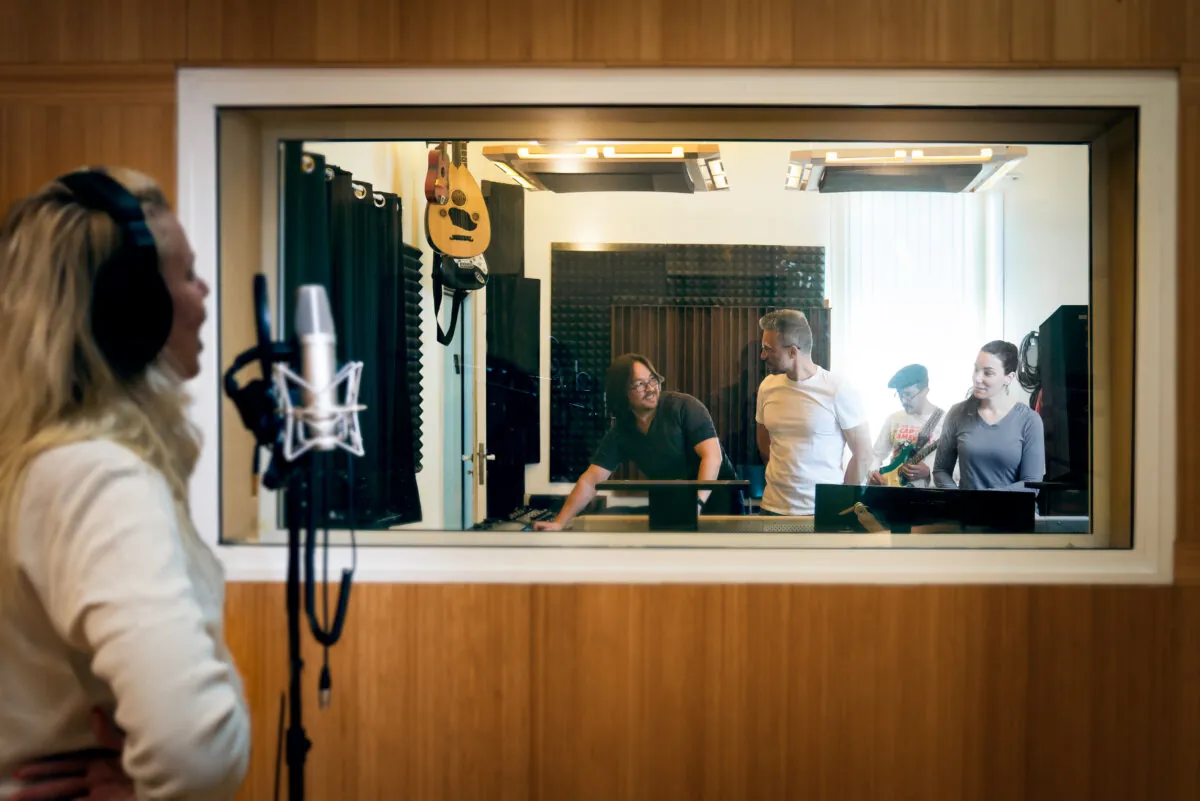
Left to right: Andrew, Roman, Stefan and Shani in studio control room
Andrew
Engineer/Musician
Andrew, our studio engineer, grew up in California and had a dream of living and working in Japan. But he had friends in the Messianic Jewish community in California and was curious about Israel as well. So he decided to take a tour of the Holy Land to see some of the sights he’d read about in his Bible.
One of his friends had a contact with a local Israeli ministry and while he was in the country, he decided to look them up. It was during a visit to their office that he met a young Israeli woman named Shani (not Ferguson) who was working there. The rest, as the poets say, is history.
“We quickly realized that my meeting her was what God had in mind from the beginning regarding my visit to Israel,” he recalls.
In order to stay in touch with his new friend, Andrew volunteered with an Israeli ministry and stayed with them for many years, eventually marrying Shani and buying a house with her in a village near Jerusalem. Although he had long given up on the idea of living in Japan, Andrew had a passion for music and decided to study sound engineering in Tel Aviv. Ironically, it was Maoz’ I Stand with Israel fund that put him through school not knowing they would be the ones who would ultimately enjoy the skills he would acquire.
“I started working for Maoz full-time towards the end of 2018 and a year later COVID began to be an issue,” he said. “But even when lockdowns started we were able to continue working because the music was considered an essential service by the government. I love music but growing up in California, I never dreamed I’d be able to work in this field in Israel. It’s such a blessing to be able to do what I love, working for the Lord as part of a great team like the one we have here at Maoz.”
Stefan
Music Composer
Stefan is one of our musical composers. He was born in Romania and came to Israel with his parents when he was four years old. As a young man, he moved to Jerusalem and began to attend a congregation that soon hired him to work as a janitor. But we sometimes saw him taking breaks from pushing his broom to write on small sheets of paper, and when we asked him what he was writing he said the songs that God had put on his heart.
We promised him that one day, when we had the opportunity, we would hire him to write those songs. In 2016, when we finally opened the studio we had dreamed about and prayed for, he was the first person we called on.
“At times I write my own songs and compose drafts which are later taken to the main production area and developed until they’re ready to be released,” he said. “At other times I do the same with the songs of others who’d like to develop a song from just a melody. Some of the worship songs sung today in congregations across Israel were birthed in this manner.”
Examples of songs that Stefan has worked on that many people in Israel would recognize are Ein Elohim Acher (No Other God), Lo Amaher (I Won’t Hurry), Kes Ha’Rachamim (Throne Of Mercy) and Sha’areh Ha’Shamaim (Gates Of Mercy).
“I want to continue working and developing in the crafting of music,” he said. “My hopes are to see more and more creativity released as we produce this music to give glory and honor to Yeshua and to be a blessing to the world around us.”
“I would like to encourage people to not give up on the gift that God has given them no matter its size, big or small. God can make a way for their gift just as He did for me.”
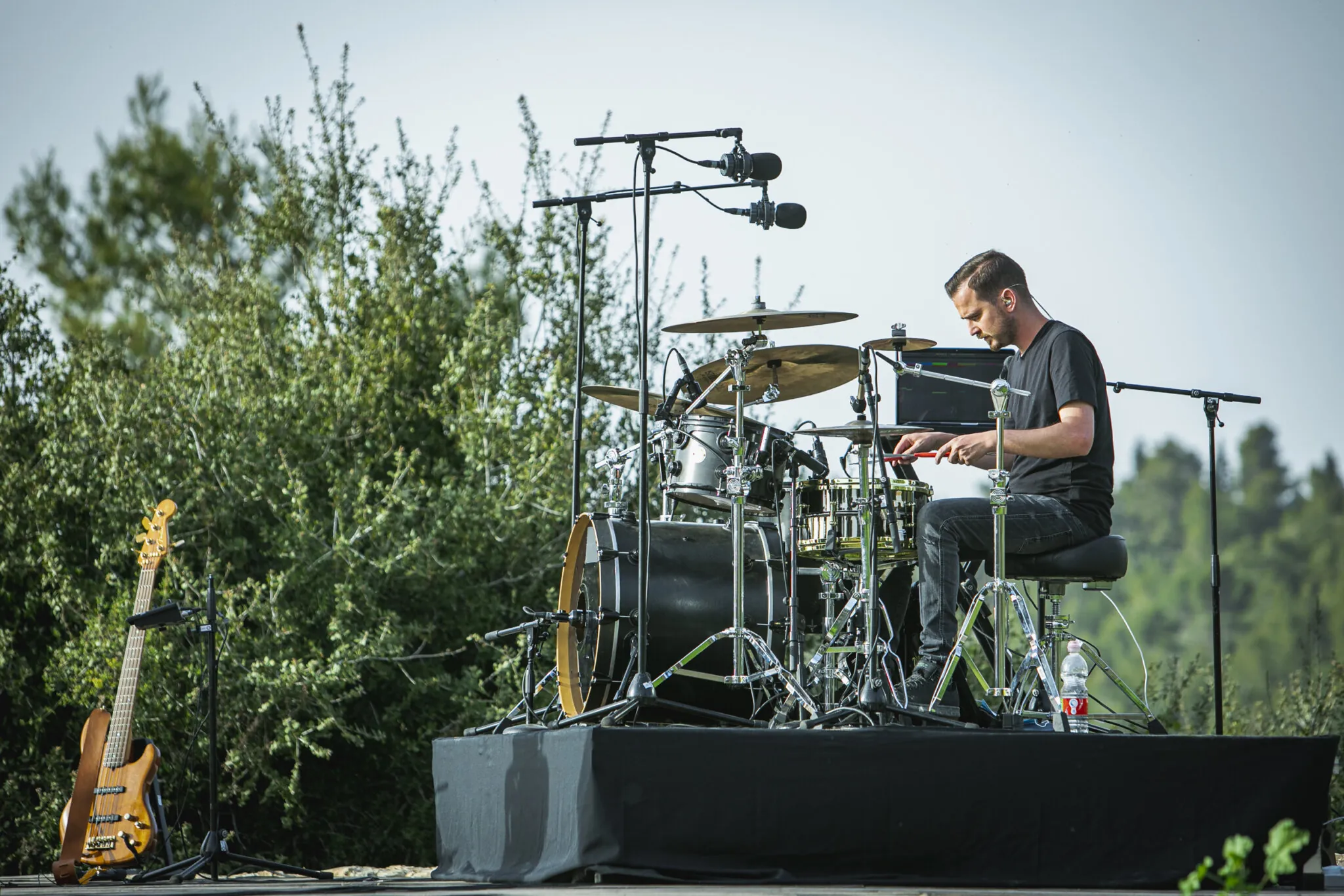 “Today, I manage the studio, mentor, and produce music for young up-and-coming musicians and worship leaders across the country.” – GABRIEL
“Today, I manage the studio, mentor, and produce music for young up-and-coming musicians and worship leaders across the country.” – GABRIEL
Gabriel
Producer/Musician
Gabriel was born in France and immigrated to Israel with his family when he was six. He started playing the drums at that time and grew up in the musical community in Israel. He began working with Maoz while serving in the Israel Defense Forces and when he was offered a full-time position to run the operations of the Maoz recording studio in Jerusalem, he gladly accepted.
“When they shared their plan for Maoz Israel Music and the vision to see the restoration of modern-day Levites, I knew this was the place for me,” he said. “I was beginning a life dedicated to serving in worship just like the Levites did in Bible times in this very city! Today, I not only manage the studio, but mentor and produce music for young up-and-coming musicians and worship leaders across the country. There’s just nothing like this anywhere else in the country and I’m beyond honored to be part of it.”
“When I started it was just me and Stefan but now the team is up to 13 people and I’m hoping for many more musicians to join in our efforts. God will bring the people He wants to be here; we’re not in control of that. I would say that He is running the show. New people come sometimes in very unexplained ways; they just show up and start talking to us and soon the relationship blossoms and it’s obvious that they were meant to be here.”
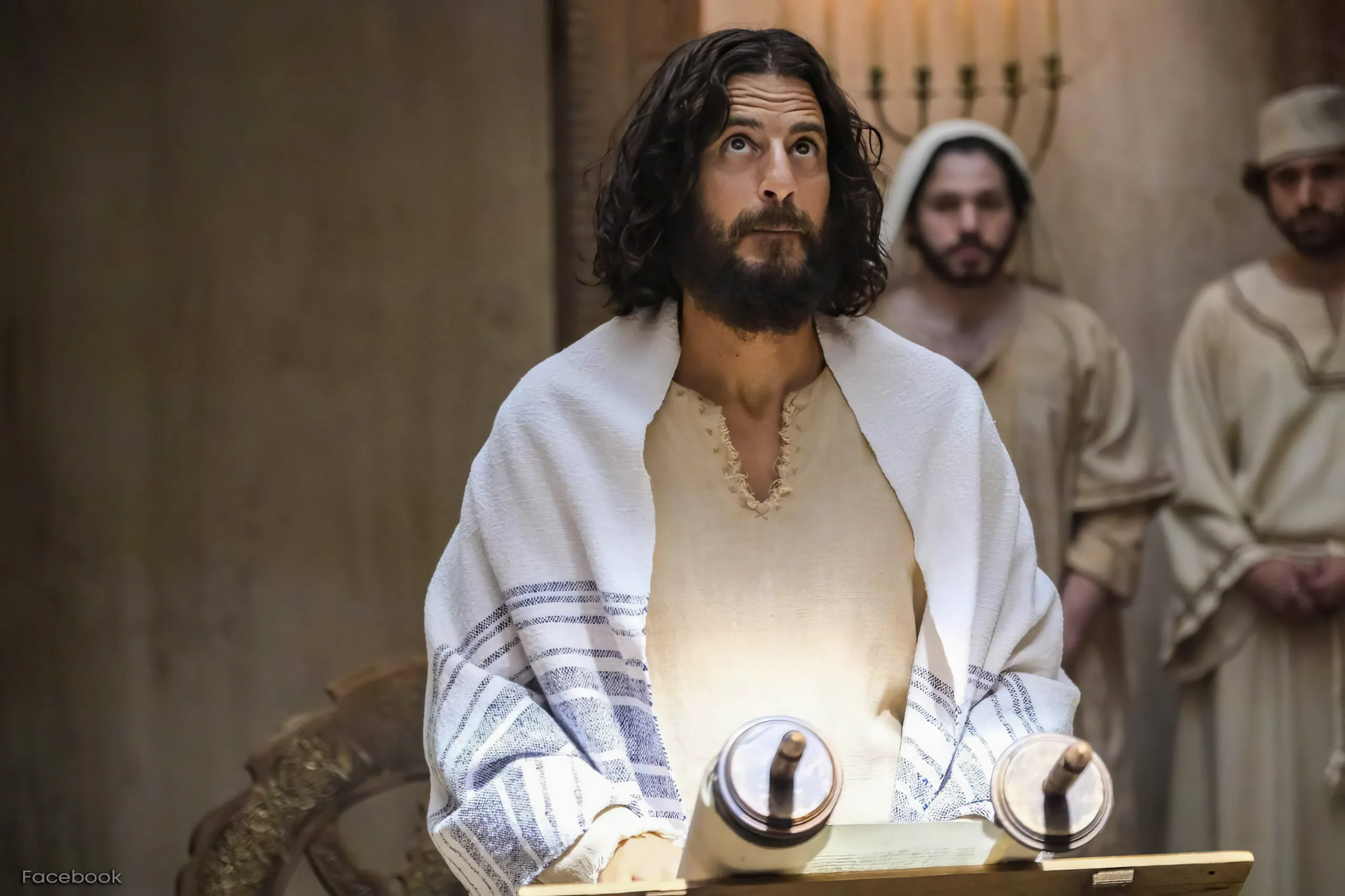
Christianity is a Jewish Covenant
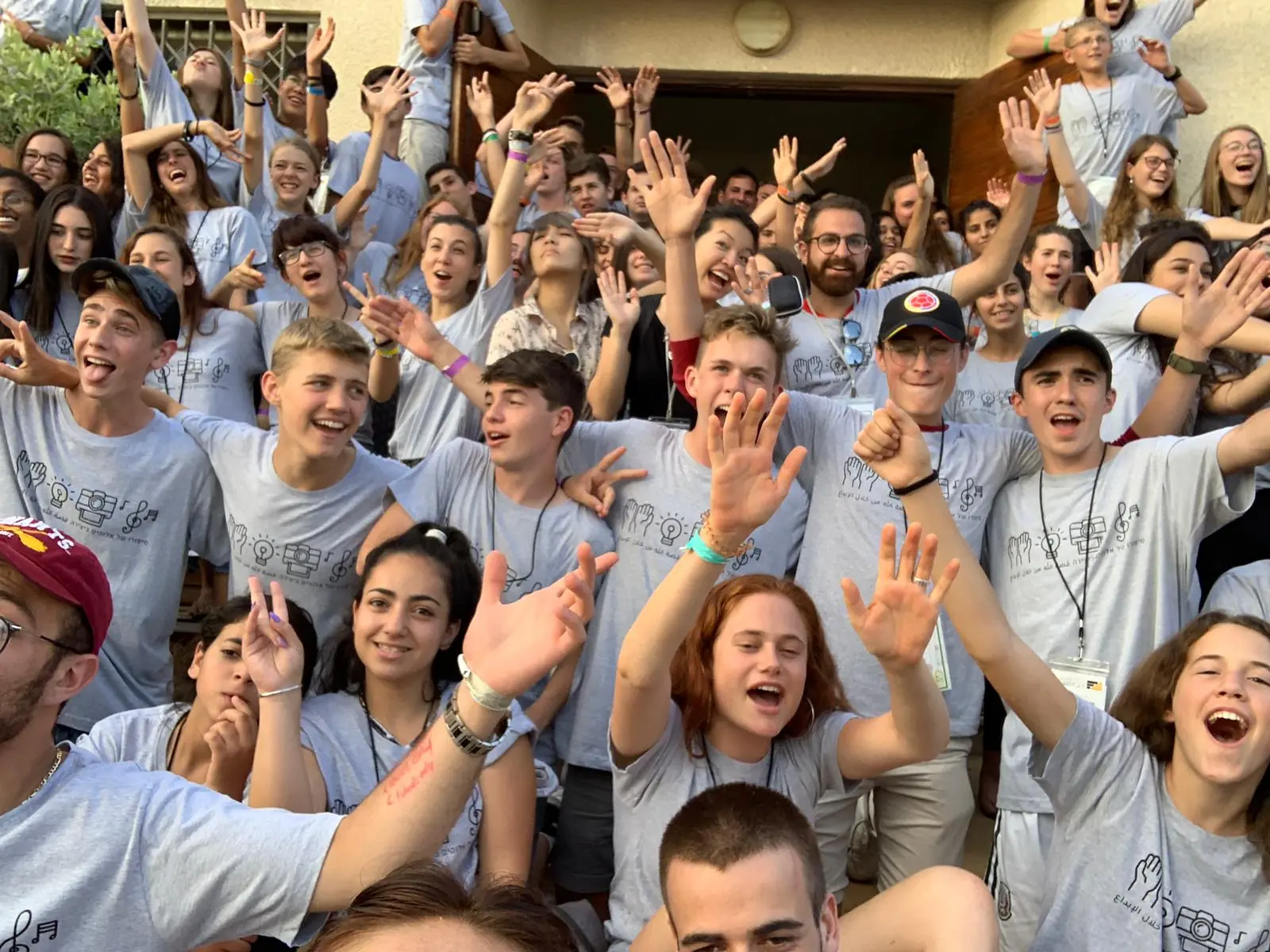
Shared Faith, Shared Future: Arab and Jewish Unity

Be the Light for Israel

And the Truth Shall Keep You Free

Iran by Proxy
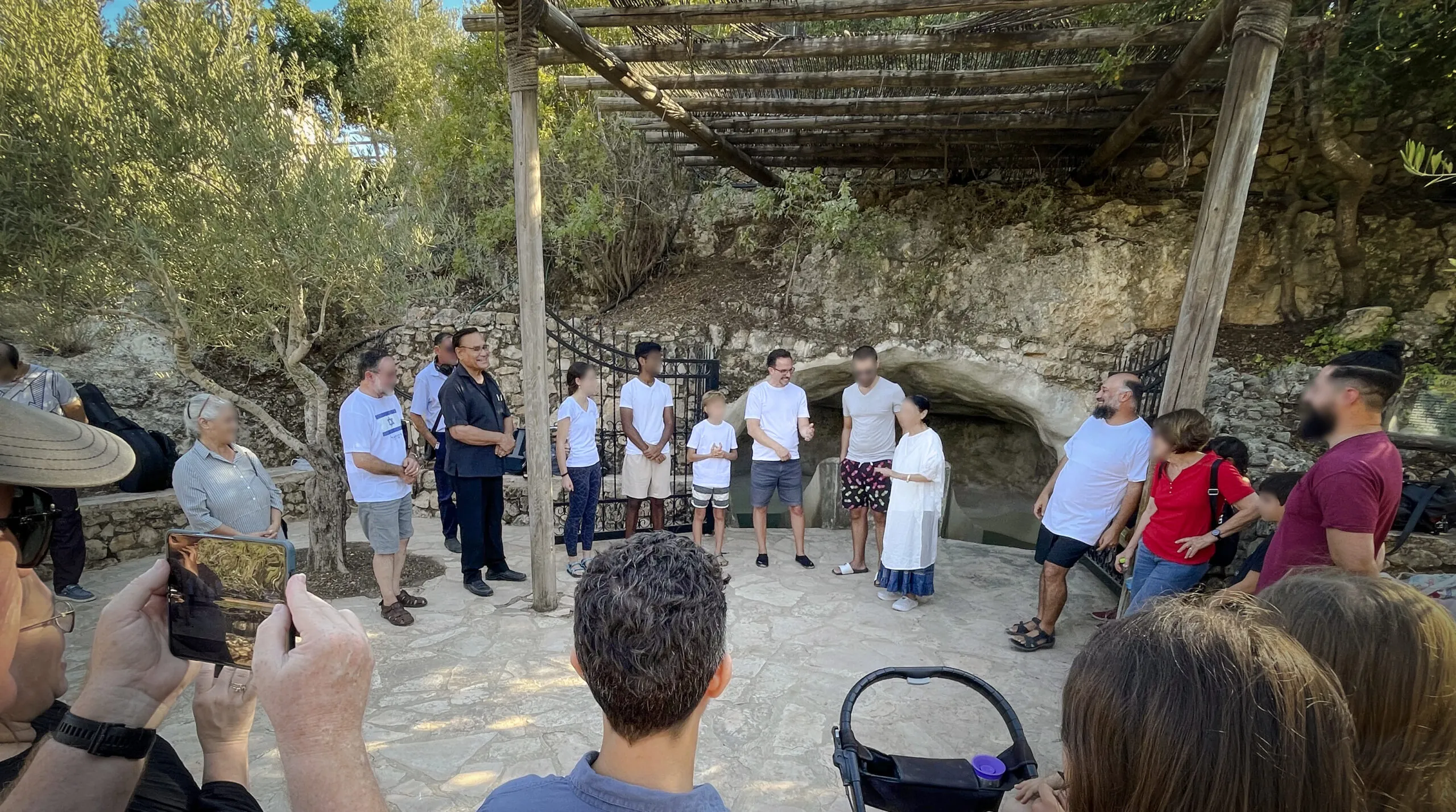
Strong Congregations Make a Strong Body

Happy Passover!

What is a Promised Land?

The Scariest Parable in the Bible
